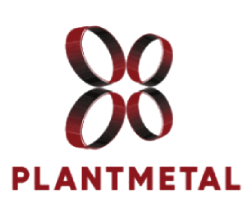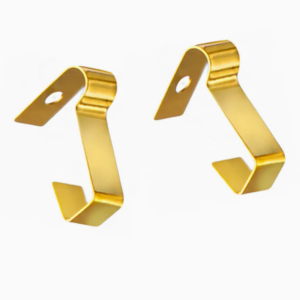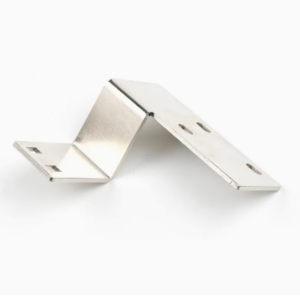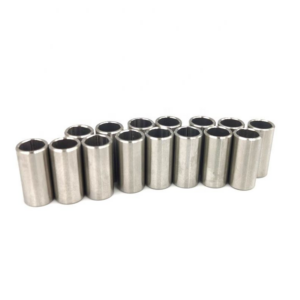Serviço de Usinagem CNC
- Foco na Fabricação de Maquinagem CNC Personalizada
- Serviços sob demanda
- Entrega em 10 dias após a encomenda.
- Usinagem CNC de 3 eixos, 4 eixos e 5 eixos
As Nossas Capacidades de Usinagem CNC
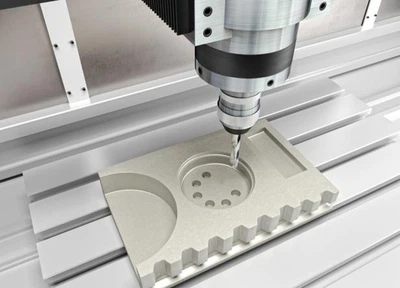
CNC Fresagem
Para peças personalizadas que exigem tolerâncias exatas e superfícies lisas e planas, os nossos serviços de fresagem CNC de 3 e 5 eixos são a solução ideal. Entregamos componentes mecanizados com tolerâncias precisas de até 0,01 mm, garantindo resultados de alta qualidade para as suas aplicações mais exigentes.
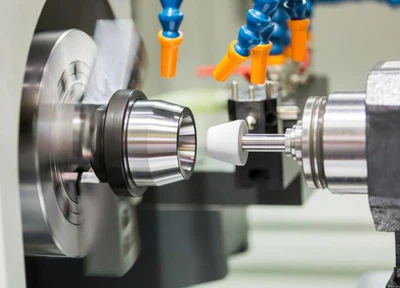
CNC Torneamento
A fresagem CNC oferece uma solução eficiente e económica para a fabricação de componentes cilíndricos, como pinos, eixos e espaçadores, ou qualquer peça que exija simetria rotacional. Os nossos tornos de precisão são projetados para proporcionar resultados de alta qualidade com uma precisão e consistência excecionais.
Por que escolher a Plantmetal para Fresagem CNC
Na Plantmetal, os nossos serviços de fresagem CNC são caracterizados pela precisão e eficiência. Como um parceiro de confiança para a fabricação de qualidade, oferecemos:
- Máquinas CNC Avançadas de 5 Eixos: As nossas máquinas de 5 eixos de última geração permitem-nos produzir componentes complexos com menos montagens e uma precisão melhorada.
Produção de Peças Versátil: Realizamos usinagem CNC para peças com diâmetros que variam entre 0,2 polegadas e 8 polegadas e até 20 polegadas de comprimento.
- Software CAM de Última Geração: A nossa utilização de software CAM avançado otimiza os percursos das ferramentas e reduz os custos de fabrico, garantindo uma produção eficiente.
- Troca Automática de Ferramentas: Equipadas com trocadores automáticos de ferramentas, as nossas máquinas CNC minimizam os tempos de preparação e aumentam a produtividade.
Exibição de Peças Fresadas CNC
Especializamo-nos na maquetação de protótipos rápidos e na produção em pequenos volumes para clientes de vários setores, incluindo aeroespacial, automóvel, defesa, eletrónica, automação industrial, maquinaria, dispositivos médicos, petróleo e gás, e robótica.
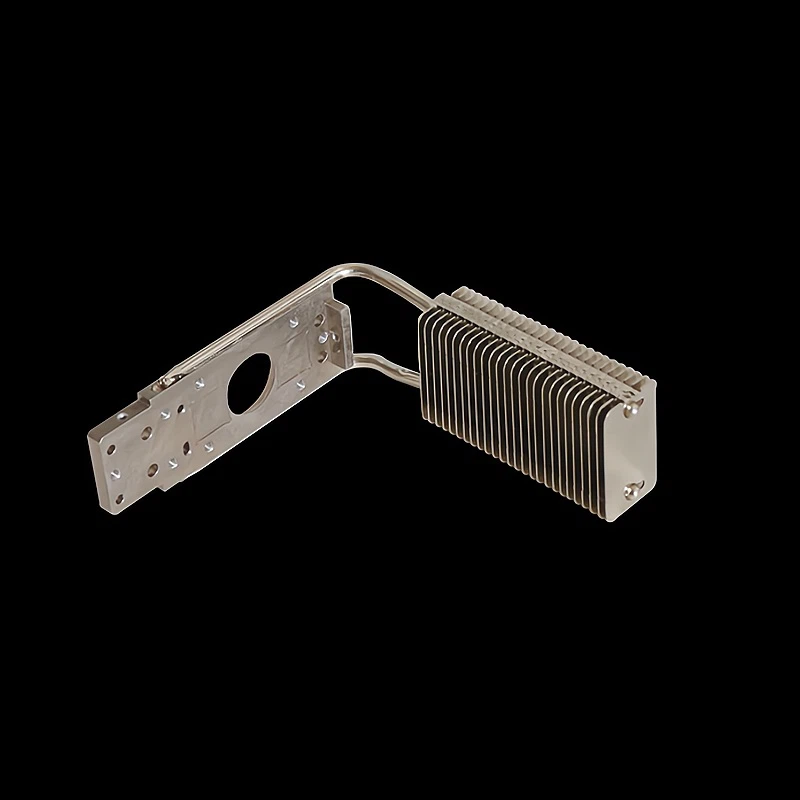
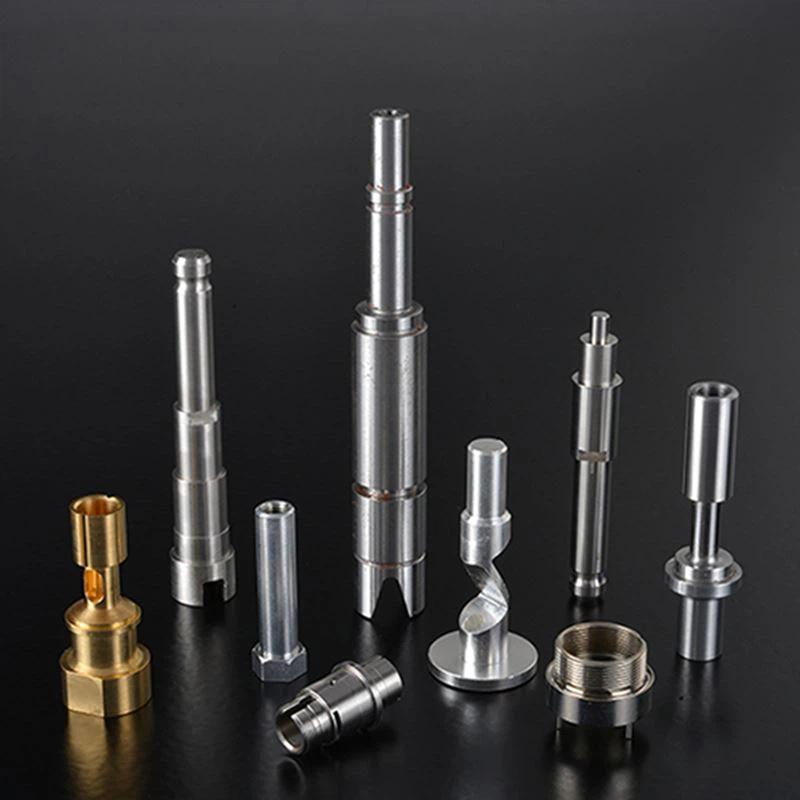
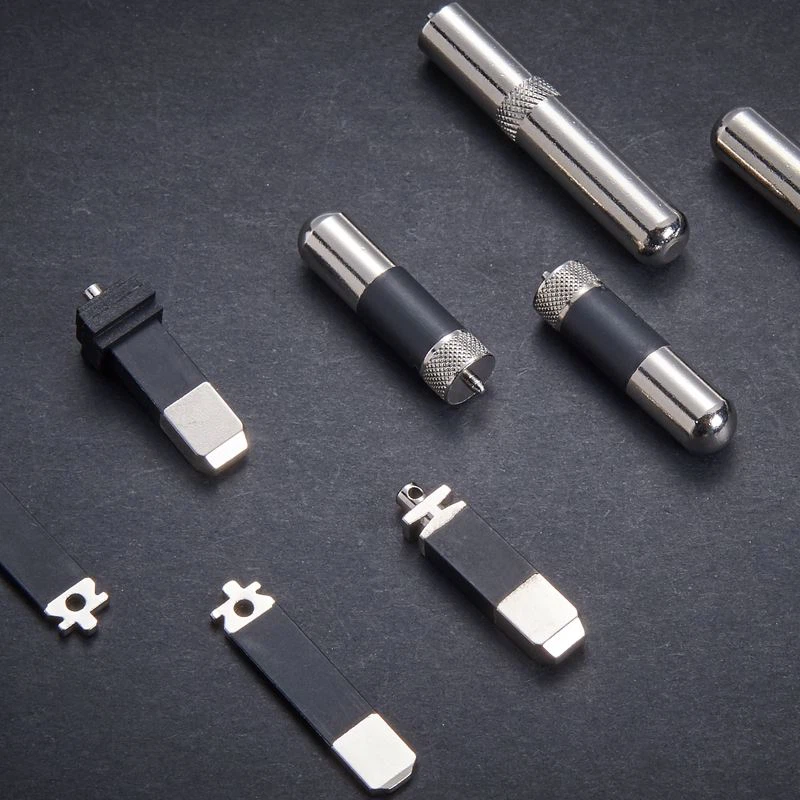
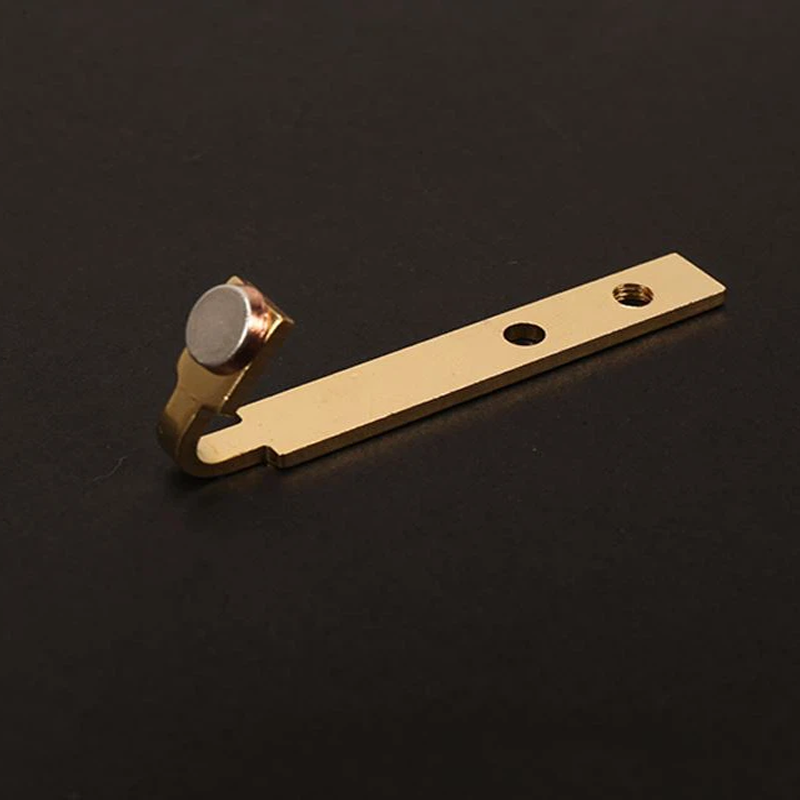
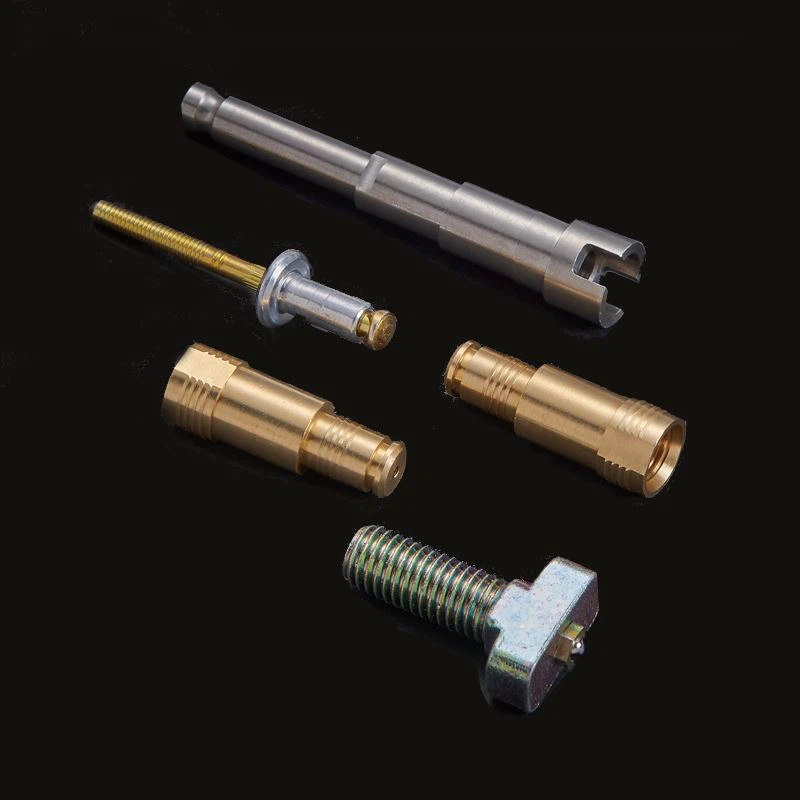
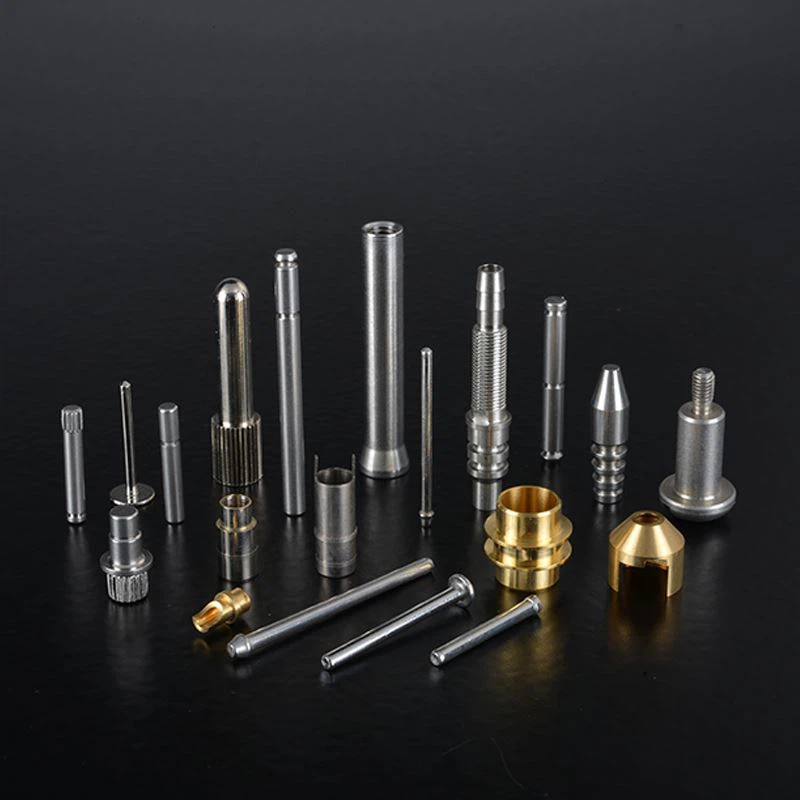
Material para Peças Personalizadas de Fresagem CNC
Cobre
O cobre é conhecido pela sua excelente condutividade elétrica e térmica, assim como pelas suas robustas propriedades mecânicas e pela sua boa trabalhabilidade.
Tipos: - C11000: Conhecido pela sua elevada condutividade elétrica. - HPB59: Uma liga de cobre de alto desempenho com propriedades mecânicas melhoradas.
Alumínio
O alumínio é um metal leve e resistente à corrosão, conhecido pela sua alta resistência e excelente usinabilidade.
Tipos:
- 1050, 1060: Alumínio puro com alta resistência à corrosão e boa trabalhabilidade.
- 2024, 2A16, 2A02: Ligas de alta resistência adequadas para aplicações aeroespaciais e estruturais.
- 3003, 3A21: Ligas de uso geral com boa conformabilidade e resistência moderada.
- 4A01: Conhecida pela sua boa resistência e excelente usinabilidade.
Aço
Steel is a widely utilized metal primarily composed of iron alloyed with carbon and other elements to enhance its properties.
Types:
- 12L14: A free-machining steel known for its excellent machinability and good mechanical properties.
- 1215: A low-carbon steel with superior machinability, often used for high-volume manufacturing.
- SUM22: A medium-carbon steel offering a balance of strength and machinability, commonly used in structural applications.
- SUS303: An austenitic stainless steel with good machinability and resistance to oxidation, suitable for manufacturing parts requiring corrosion resistance.
Latão
O latão é uma liga de cobre e zinco, caracterizado pelo seu distinto tom dourado avermelhado. É amplamente utilizado em aplicações que requerem baixa fricção e boa usinabilidade.
Tipos:
- C3601: Known for its excellent machinability and good corrosion resistance, often used in precision machining applications.
- C3602: Offers high strength and machinability, suitable for manufacturing components that need to withstand wear.
- C3603: Provides good mechanical properties and corrosion resistance, commonly used in plumbing fittings and electrical connectors.
- C3604: Features high ductility and excellent machinability, ideal for intricate, high-precision parts.
Plastic
Our CNC machining services accommodate a diverse array of plastic materials, from standard options to specialized varieties.
Tipos:
- ABS (Acrylonitrile Butadiene Styrene): Known for its impact resistance and toughness, making it ideal for a variety of industrial and consumer applications.
- PTFE (Polytetrafluoroethylene): Offers exceptional chemical resistance and low friction, suitable for applications requiring high durability and stability.
- PVC (Polyvinyl Chloride): Provides good mechanical properties and chemical resistance, commonly used in piping, fittings, and electrical insulation.
- PE (Polyethylene): Features excellent impact resistance and low friction, used in applications ranging from packaging to industrial components.
Custom Material Options
Com base nas especificações do cliente, incluindo desenhos, requisitos de usinagem e necessidades de desempenho, oferecemos uma gama de opções de materiais adaptadas ao seu projeto. Tipos: - Zinco: Valorizado pela sua resistência à corrosão e facilidade de usinagem, frequentemente utilizado em fundição sob pressão e revestimento. - Titânio: Reconhecido pela sua elevada relação entre resistência e peso e excelente resistência à corrosão, adequado para aplicações aeroespaciais, médicas e de alto desempenho. - Ferro Fundido: Conhecido pela sua durabilidade e resistência ao desgaste, utilizado comumente em componentes automotivos e de maquinaria pesada. - Nylon: Oferece excelentes propriedades mecânicas, incluindo alta resistência à tração e resistência ao impacto, ideal para aplicações que requerem robustez e resistência ao desgaste.
Opções de Acabamento para Usinagem CNC
Estão disponíveis diferentes tratamentos de superfície de acordo com cada projeto.
| Imagens | Nome | Variedade | Descrição |
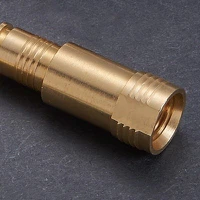 |
Tratamento de Revestimento | Here’s the translation to Portuguese (Portugal): - chrome plating: niquelagem - zinc plating: zincagem - nickel plating: niquelagem - electroplating: eletrodeposição - electrophoresis: eletroforese If you need further assistance, feel free to ask! |
Ao revestir uma camada de metal ou liga na superfície da peça, pode-se melhorar a resistência à corrosão, a resistência ao desgaste e a estética da peça. |
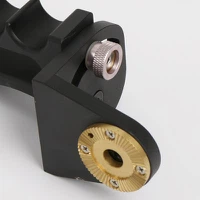 |
Oxidation Treatment | anodização, oxidação química, etc | Formar uma camada de filme de óxido na superfície da peça pode melhorar a sua resistência à corrosão, resistência ao desgaste e estética. |
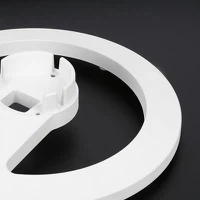 |
Tratamento de Revestimento | painting, powder spraying, etc. | Spraying a special coating on the surface of the part, its anti-corrosion, wear resistance, and aesthetics can be improved. |
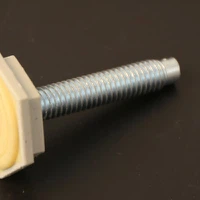 |
Tratamento Térmico | têmpera,revenimento,normalização,recozimento< | Ao aquecer a peça a uma temperatura específica e, em seguida, resfriá-la em condições adequadas, as propriedades físicas do material podem ser melhoradas, como a resistência, a tenacidade e a resistência ao desgaste. |
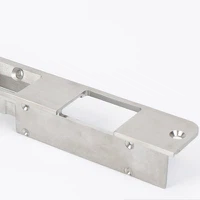 |
Tratamento de Polimento | polimento mecânico, polimento químico, etc | O rectificado mecânico ou o tratamento químico podem tornar a superfície da peça lisa e brilhante, o que aumenta a sua estética e a sensação ao toque. |
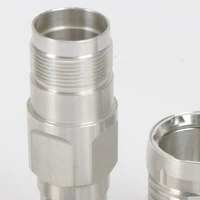 |
Grinding Treatment | mechanical grinding, chemical grinding, etc. | Usando um processo de moagem, a superfície da peça pode ser feita para atingir a suavidade e precisão exigidas, aumentando a sua precisão e estética. |
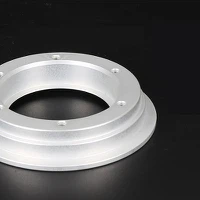 |
Sandblasting Treatment | / | The part's surface can be uniformly and finely scratched using a high-pressure sandblasting process, increasing its aesthetics and anti-slip properties. |
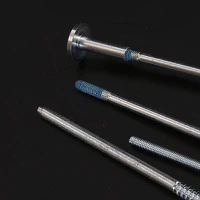 |
Chemical Treatment | lavagem ácida, lavagem alcalina, etc | Usando uma reação química, a superfície da peça pode sofrer uma mudança química, melhorando o seu desempenho ou estética. |
FAQs Sobre Máquinas CNC
Q: As peças usinadas por CNC podem ser personalizadas?
A: Sim, as peças usinadas por CNC podem ser personalizadas para atender a requisitos específicos. Oferecemos soluções sob medida, modificando modelos CAD, ajustando trajetórias de ferramentas e afinando parâmetros de usinagem para se alinhar às necessidades únicas do cliente.
Q: Can CNC machined parts be customized?
A: Yes, CNC machined parts can be customized to meet specific requirements. We offers tailored solutions by modifying CAD models, adjusting toolpaths, and fine-tuning machining parameters to align with the customer's unique needs.
Q: Qual é o tamanho máximo para peças usinadas em CNC? A: A Plantmetal pode produzir peças usinadas em CNC com diâmetros que variam de 0,2 polegadas a 8 polegadas e comprimentos de até 20 polegadas.
Q: Que nível de precisão pode ser alcançado com a usinagem CNC e como é mantida essa precisão? A: A usinagem CNC geralmente alcança alta precisão, frequentemente dentro de algumas milésimas de polegada (0,025 mm) ou mais apertada, dependendo da máquina e das exigências da peça. Essa precisão é mantida através de fatores como tecnologia avançada de máquinas, controlo computacional preciso, calibração e configuração meticulosas, e medidas rigorosas de controlo de qualidade.
